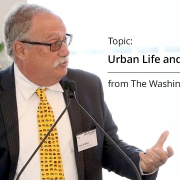Urban Life and Pandemics
By: Joel Kotkin
Appearing in: The Washington Post
Pandemics have always been the enemy of dense, urban life. Cities, where people live in close quarters and mix with people from other places, are ideal breeding grounds for contagions. So far, by contrast, there have been comparatively few coronavirus infections in the vast middle of the United States, particularly in the rural reaches. When the bubonic plague devastated Europe, as the historian William McNeill noted, the cosmopolitan centers of Renaissance Italy fared far worse than the reaches of Poland or other parts of Central Europe. Those grandees who could, like some contemporary wealthy New Yorkers, fled to their country homes, where the chance of infection was slighter.
Even before covid-19 hit, large urban centers like New York, Los Angeles and Chicago were losing population; more than 90 percent of all population growth since 2010 has taken place in the suburbs or exurbs. Millennials, as a new study from Heartland Forward demonstrates, based on an analysis of census numbers, increasingly head to cities and towns in the middle of the country and away from the supposed “magnets” of New York, Los Angeles and Chicago.
The current pestilence is likely to accelerate those shifts, which bear major ramifications for how Americans get to work. Transit ridership was doing poorly before the crisis, declining throughout the country, while telecommuting and driving alone continue to grow. With the specter of contagion, city-dwellers are told to avoid crowded subways, removing a critical element that makes ultradense cities work. In New York, subway traffic is down precipitously, as many commuters now work at home instead. Toronto is eliminating much of its downtown train service. The Washington Metro is also cutting back.
Just as progressives and environmentalists hoped the era of automotive dominance and suburban sprawl was coming to end, a globalized world that spreads pandemics quickly will push workers back into their cars and out to the hinterlands.
This piece first appeared in the The Washington Post.
Joel Kotkin @joelkotkin, a presidential fellow in urban futures at Chapman University, is executive director of the Urban Reform Institute. His forthcoming book is “The Coming of Neo-Feudalism: A Warning to the Global Middle Class.”



